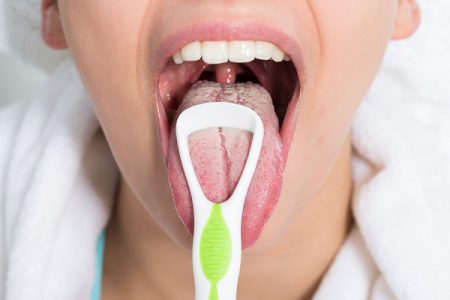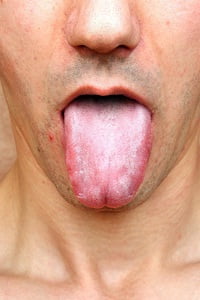Dry mouth or xerostomia is a symptom characterized by lack of saliva. People suffering from dry mouth do not produce enough saliva to keep their mouth wet. Rarely, dry mouth is a sign of any serious condition and there are many things that you can do to ease your dry mouth symptoms.
What Causes Dry Mouth?
There are different causes of having a dry mouth. Some of them include:
- Side effects to certain medications
- Side effects of some infections and diseases / conditions
- Side effects of some medical treatments like surgery
- Nerve damage
- Removal of salivary glands by surgery
- Dehydration
- Changes in lifestyle
Read more about causes of dry mouth.
How Can You Get Relief From Your Dry Mouth?
Having a dry mouth is not so easy. People who have dry mouth face many difficulties like difficulty in swallowing, problem in speaking, sore throat, poor oral health, etc.
Although, it is not so easy to get rid of dry mouth, however, the following steps can help you in getting relief from your dry mouth symptoms:
- Drinking plenty of fluids to stay hydrated
- Avoid caffeinated drinks like tea, coffee, carbonated drinks, etc. Caffeine being a diuretic leads to dehydration
- Avoid drinking of alcohol as it may worsen the symptoms of your dry mouth
- Stimulate the production of saliva by chewing sugar-free candies and gums
- Maintain good dental hygiene that will protect you from various oral infections responsible for dry mouth
- Use a mixture of warm water and salt for washing your mouth before sleeping as it will reduce the acidity in your mouth and help you in getting relief from dry mouth
- Prefer nasal breathing rather than breathing through your mouth. Mouth breathing evaporates the moisture from your mouth resulting in dryness of oral cavity which in turn causes dry mouth and also exacerbates the problem
- Avoid environmental conditions that may result in dry mouth. Use air filters, humidifiers, or other appliances that may moisten the air at your home.
- Avoid dryness of your lips as it may contribute to dry mouth
- Drink water between the meals so that you can swallow your food easily
- Avoid alcohol-containing mouthwashes
- Quit smoking and tobacco-based products
- Brush your teeth with a fluoride containing toothpaste
Home Remedies for Dry Mouth
Following are some of the home remedies that may help you in getting relief from your dry mouth:
- Use ginger sprays and other ginger containing products like ginger tea because it stimulates your salivary glands for releasing saliva so that you can get relief from your dry mouth.
- Use sugarless chewing gums and lozenges for keeping your mouth moist.
- Keeping some edible oils like coconut oil and sesame oil in your mouth for ten to fifteen minutes may help in overcoming dry mouth symptoms. However, the oil should not be swallowed. Oiling your mouth helps in soothing mouth sores and rashes caused due to dry mouth.
- Ginseng and other herbal remedies may also help in getting relief from dry mouth as they moisturize your mouth. However, till now there is no strong evidence suggesting the benefits of ginseng in dry mouth. Also, you should consult your doctor for any side effects before using these natural herbs.
- Acupuncture may also help some patients with dry mouth. It is suggested that it activates the part of the brain responsible for saliva production and therefore provides relief to patients.
- Sucking a lemon may also help you in getting relief from dry mouth as it stimulates the release of saliva.
More: Why is there a need to visit an emergency dentist?
More: Association between stress and dry mouth
Treatment of Dry Mouth
The treatment of dry mouth is usually based upon its underlying cause. The treatment mainly focuses on the following three areas:
- Managing the medical conditions responsible for causing the dry mouth
- Preventing tooth decay
- Stimulating the flow of saliva, if possible
Managing the Medical Condition
If the dry mouth is caused due to some medication, the doctor may change the medicines. However, in some cases, where changing the medication is not possible (e.g., chemotherapy), the doctor focuses on increasing the flow of saliva.
Preventing Tooth Decay
Lack of saliva not only interferes with your swallowing of food but also makes your teeth prone to various dental infections including decaying of teeth. Tooth decay increases the symptoms of dry mouth, therefore treating tooth decay can somehow control your symptoms of dry mouth.
Following steps can be taken for avoiding the tooth decay:
- Brushing your teeth daily, preferably after the meals
- Flossing your teeth
- Using fluoride-containing toothpaste
- Frequent dental check-ups
Increasing the Flow of Saliva
For increasing the flow of saliva, your doctor may suggest the use of artificial salivary products. Besides, some mouthwashes and toothpastes are also specially made for dry mouth and therefore increase the flow of saliva in the mouth.
Besides the above-mentioned steps for treating the dry mouth, some other treatment methods are:
Preserving the Saliva
People suffering from dry mouth should keep their oral tissues as moist as possible for preserving the remaining saliva. This can be done in following ways:
- Avoid mouth breathing
- Avoid using OTC antihistamines or decongestants because they make the mouth dry
- Avoid drinking alcohol, consuming tobacco and its products
Saliva Substitution
This involves using substances that may replace the moisture provided by the saliva. It includes the following steps:
- Drinking plenty of water
- Using alcohol-free mouthwashes
- Using mouth gels
- Using OTC saliva substitutes and oral lubricants containing glycerin
- Moisturizing your lips
Saliva Stimulation
This step involves stimulating the salivary glands for releasing the saliva in patients whose salivary glands are still functional. It includes the following steps:
- Chewing sugar-free gums and candies
- Using lemon drops, lozenges, or other hard candies for saliva production
- Stimulating saliva through medications like pilocarpine (Salagen) and cevimeline (Evoxac). However, patients with asthma or glaucoma should avoid using these medicines.
Avoiding Dental Caries and Candida Infection
Patients with dry mouth may suffer from cavities, gingivitis, periodontal disease, and fungal infections. All these diseases worsen the symptoms of dry mouth and hence should be avoided. This can be done in the following ways:
- Having a diet low in sugar content
- Using toothpaste rich in fluoride, calcium, and phosphate which helps in teeth remineralization for preventing the cavities
- Using antifungal medications in case of fungal oral diseases like oral candidiasis and thrush







